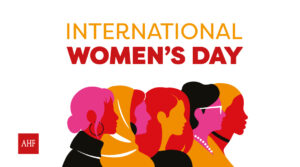Consuming illegal substances (or some legal ones) is not beneficial for anyone, but we must accept that it is a reality for many people, and that among people living with HIV the situation is not different.
However, there are some particular conditions that make important to talk about substance used with those who have the virus, since both the antiretroviral treatment itself and the effects it can have on the body interact with drugs in ways that people without HIV does not experience.
Behavior changes
When a person with HIV uses legal substances, such as alcohol, or illegal substances, such as various other drugs, the changes that these generate in their behavior could negatively affect their health.
This is due to the disinhibition or intense stimulation that drugs can produce (depending on the substance in question) change a person’s behavior, so that they make decisions that they would not have made without the effect of that substance.
For example, someone who is aware of their HIV diagnosis and treatment may forget or downplay taking their antiretroviral medications on time. He / she could also engage in unprotected sex, which puts him / her at risk for re-infection with HIV or other sexually transmitted infections (STIs). Similarly, if your own infection is not controlled, you are at risk of transmitting the virus.
In the event that this person was injecting drug use, it is also possible that they shared needles or other injection equipment with other users, exposing themselves to acquiring other blood infections or reinfection with HIV.
Effects of substances on the body
It is well known that mind-altering substances, such as alcohol and other drugs, have negative effects on the body, but people with HIV must pay special attention to some aspects.
For example, both alcohol and other substances have a debilitating effect on the immune system, which is precisely the body system that HIV attacks. Thus, a defense system unable to react to infections makes the body more vulnerable to these threats.
Also, legal and illegal drugs (especially but not only alcohol) can cause liver disease. Remember that this organ is responsible for “cleaning” harmful substances from the blood, called toxins.
Taking drugs can cause damage to the liver, causing the liver to work harder to remove toxins from the blood. When that work isn’t enough, toxins build up and can seriously affect the body. This malfunction of the liver is called liver disease.
Drug Interactions
Drugs can interact with antiretroviral medications. This means that taking a certain drug can interfere with, speed up, or slow down the action of an HIV medicine, which changes how the whole treatment works.
Although the opposite could also happen, that antiretroviral potentiate the effects of drugs to such a degree that the person falls into an overdose. According to the HIV information portal of the National Institutes of Health (NIH) of the United States, this type of case has been reported when the consumption of ecstasy (MDMA) is combined with antiretroviral.
Reduce damage
Quitting substance use would be the obvious solution to avoid these risks. However, since quitting consumption is a long process that often requires professional support, it is convenient to have some advice on hand to reduce the damage, that is, that drugs have the least possible impact on your health.
You can start with these three actions:
1. Avoid sexual intercourse when you are under the influence of substances, as you run the risk of not using a condom or losing full awareness of your body.
2. Drink alcohol moderately. According to the NIH, this means one drink a day for women and two drinks a day for men.
3. If you use injection drugs, always use new, sterile injection equipment and never share it.
Take care of your health and, if you have already decided to stay away from drug use, seek help from your medical team.
Remember that antiretroviral treatment is essential for a person with HIV to have the best possible health for longer. If you haven’t started your treatment yet or want to resume it, come to AHF Latin America and the Caribbean and we’ll help you. We are in 11 countries in the region.






